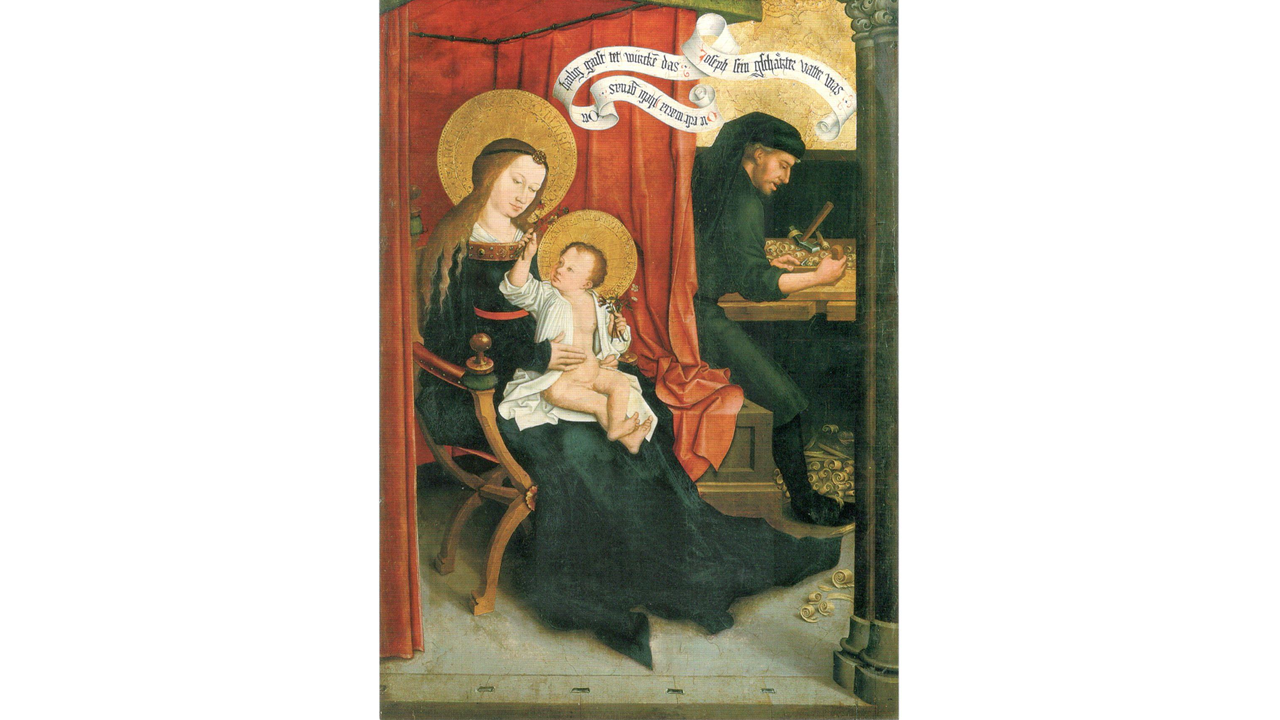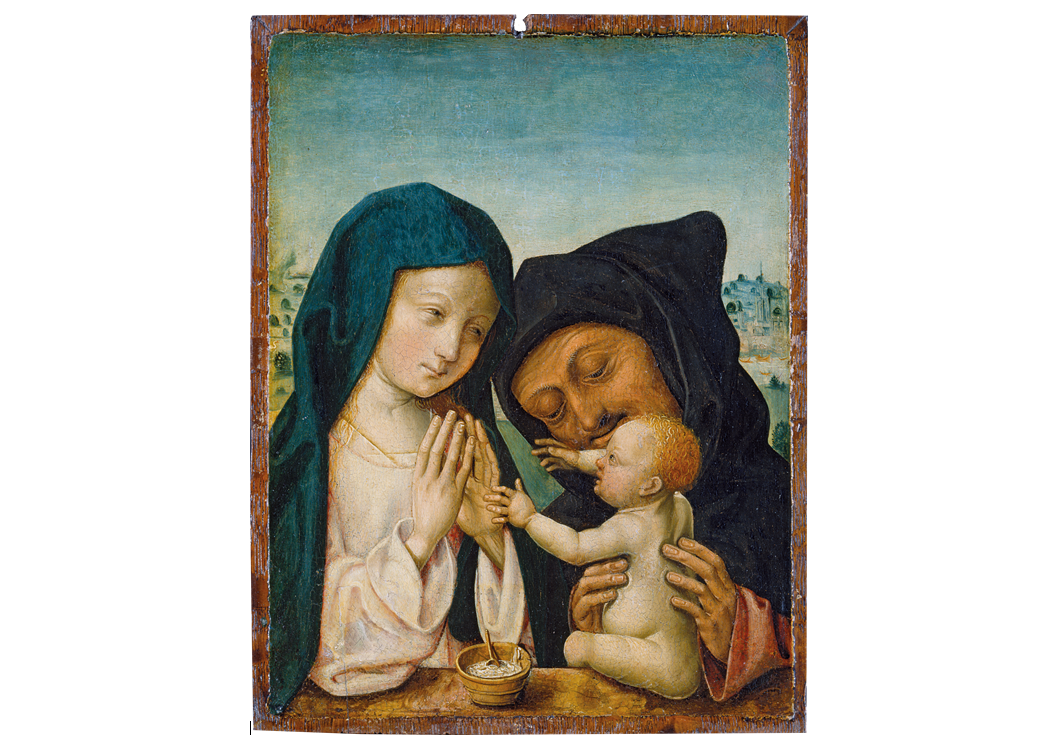+39 0669887260 | info@wucwo.org | Contact us
Art for Meditation - April 2022
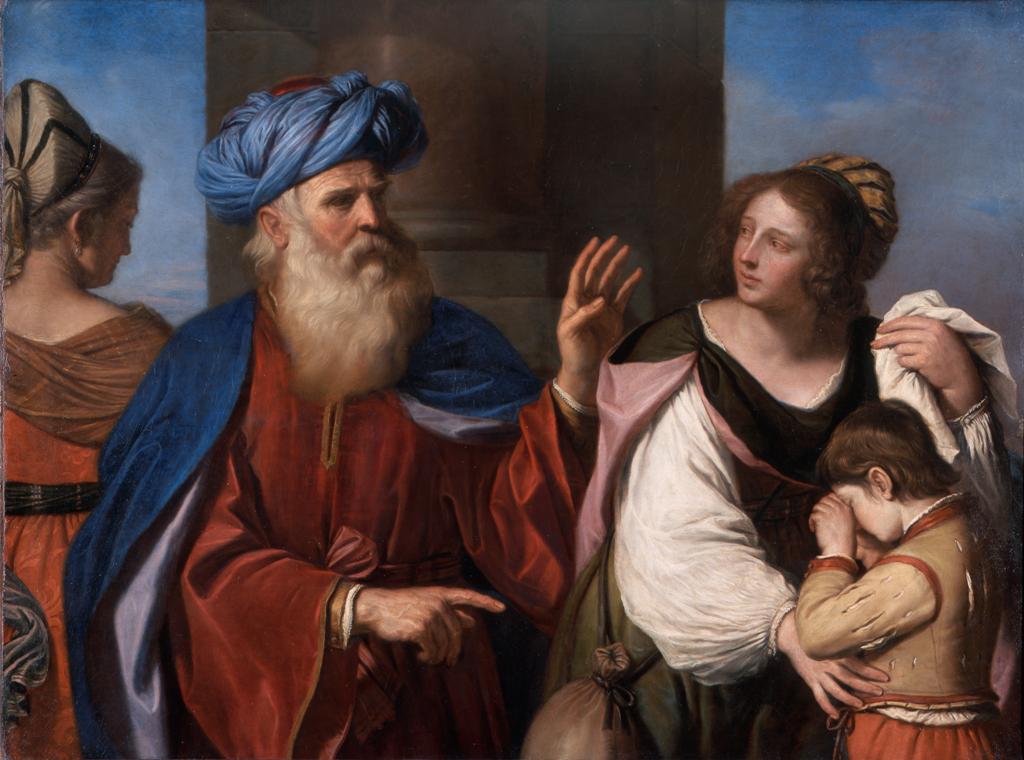
©Pinacoteca di Brera, Milano
Giovan Francesco Barbieri, known as Guercino (Cento, Italy 1591 – Bologna, Italy 1666), Abraham Casting Out Hagar and Ishmael, 1657, oil on canvas, 115 cm x 152 cm, Milano, Italy, Pinacoteca di Brera.
Month of April.
Women in the Old Testament: Hagar.
The origin of this painting is well known. It was commissioned by the community of Cento, who wanted to pay homage to the cardinal legate of Ferrara, Lorenzo Imperiali. We do not know the reason for the choice of subject, but we do know that what the painting shows us is narrated in chapter 21 of the Book of Genesis. Already in chapter 16 it is recounted that Sarah, Abraham’s wife, unable to have children, suggested to her husband that he give a son to his slave Hagar so that her husband could have an offspring. This is fulfilled and, although there is some tension between the two women, it is smoothed over by the intervention of the angel of the Lord. “Hagar bore Abraham a son, and Abraham gave his son borne by Hagar the name Ishmael. Abraham was eighty-six years old when Hagar bore him Ishmael” (Gen 16:15-16).
ART FOR MEDITATION - MARCH 2022
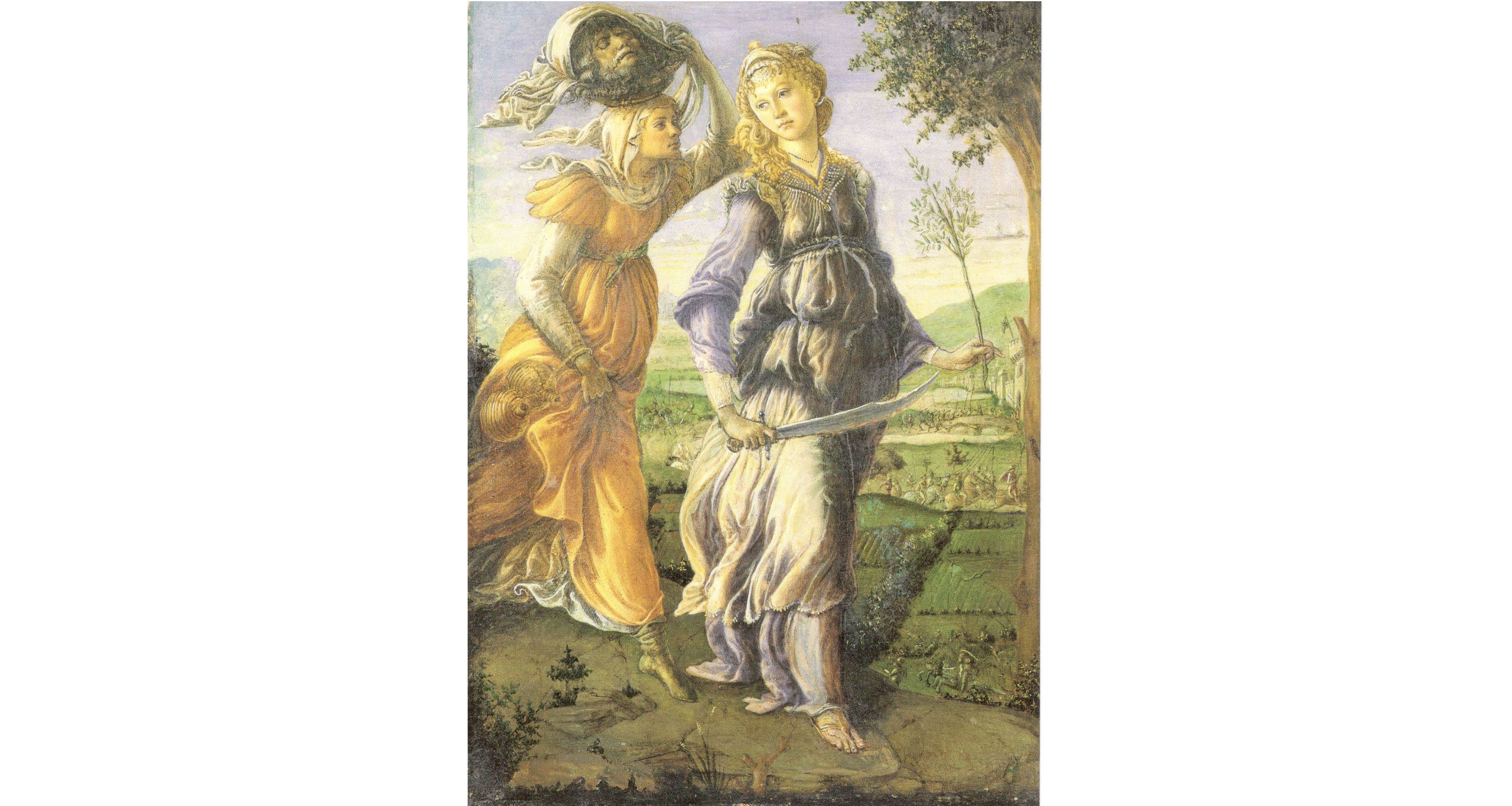
Sandro Botticelli (Florence, Italy 1445 – 1510), The Return of Judith to Bethulia, 1572, tempera on board, 31 cm x 25 cm, Florence, Uffizi Gallery
Month of March.
Women in the Old Testament: Judith.
The whole story of Judith is told in the short book of the Bible that bears her name. In 16 chapters, the story narrates the descent of the Assyrian army on Israel, the pride and arrogance shown by Holofernes, Nebuchadnezzar’s supreme commander, and his decision to lay siege to the city of Bethulia, occupying in particular the Israelites’ aqueducts and water sources.
Art for meditation - February 2022
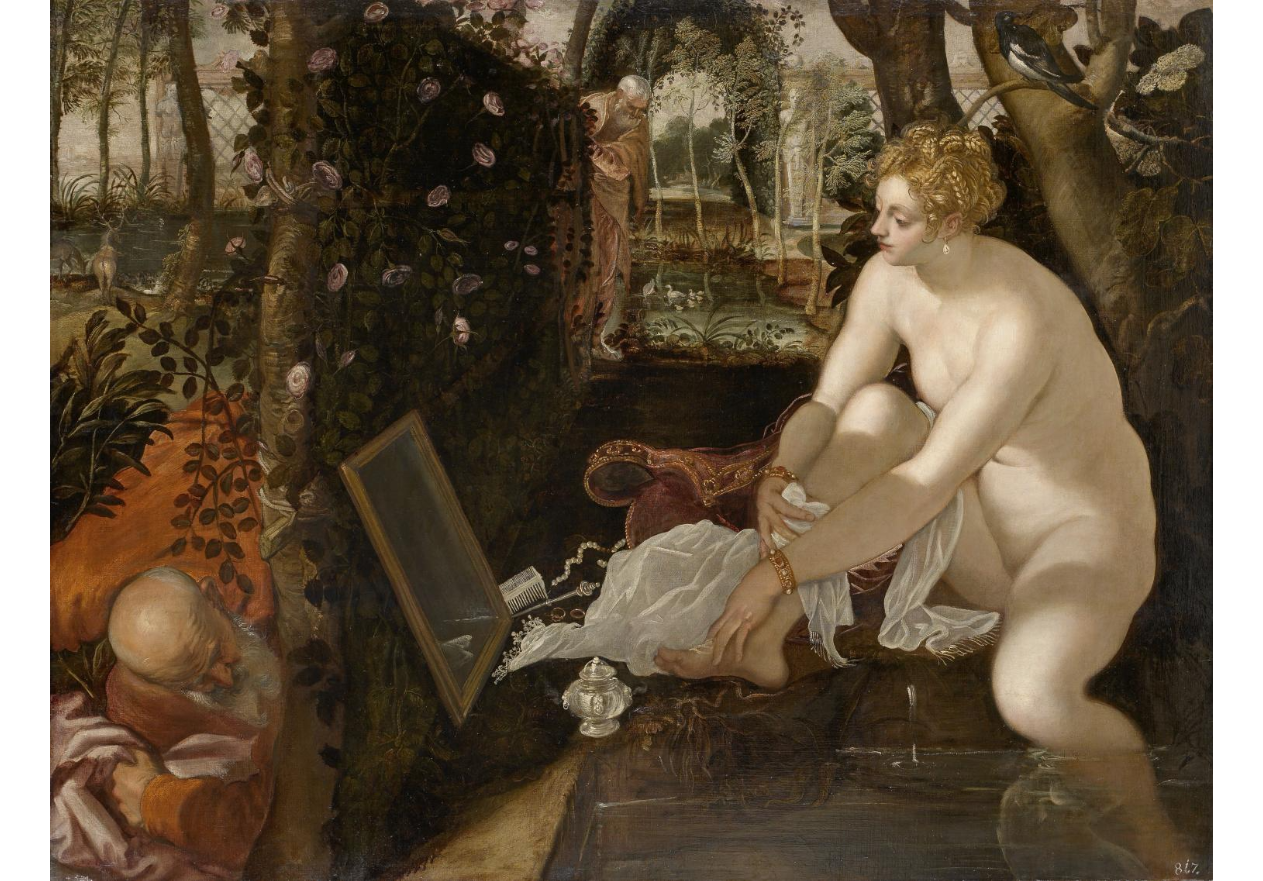
© KHM-Museumsverband
Jacopo Robusti, known as Tintoretto (Venice 1518 – 1594), Susanna Bathing, around 1555-56, oil on canvas, 187 cm x 220 cm, Vienna, Kunsthistorisches Museum.
Month of February.
Women in the Old Testament: Susanna.
In Babylon there lived a man named Joakim. He had married Susanna, daughter of Hilkiah, a woman of great beauty; and she was God-fearing, because her parents were worthy people and had instructed their daughter in the Law of Moses. Joakim was a very rich man, and had a garden attached to his house; the Jews would often visit him since he was held in greater respect than any other man. Two elderly men had been selected from the people that year to act as judges. Of such the Lord said, ‘Wickedness has come to Babylon through the elders and judges posing as guides to the people’. These men were often at Joakim’s house, and all who were engaged in litigation used to come to them. At midday, when everyone had gone, Susanna used to take a walk in her husband’s garden. (Daniel 13:1-7)
Art for Meditation - January 2022
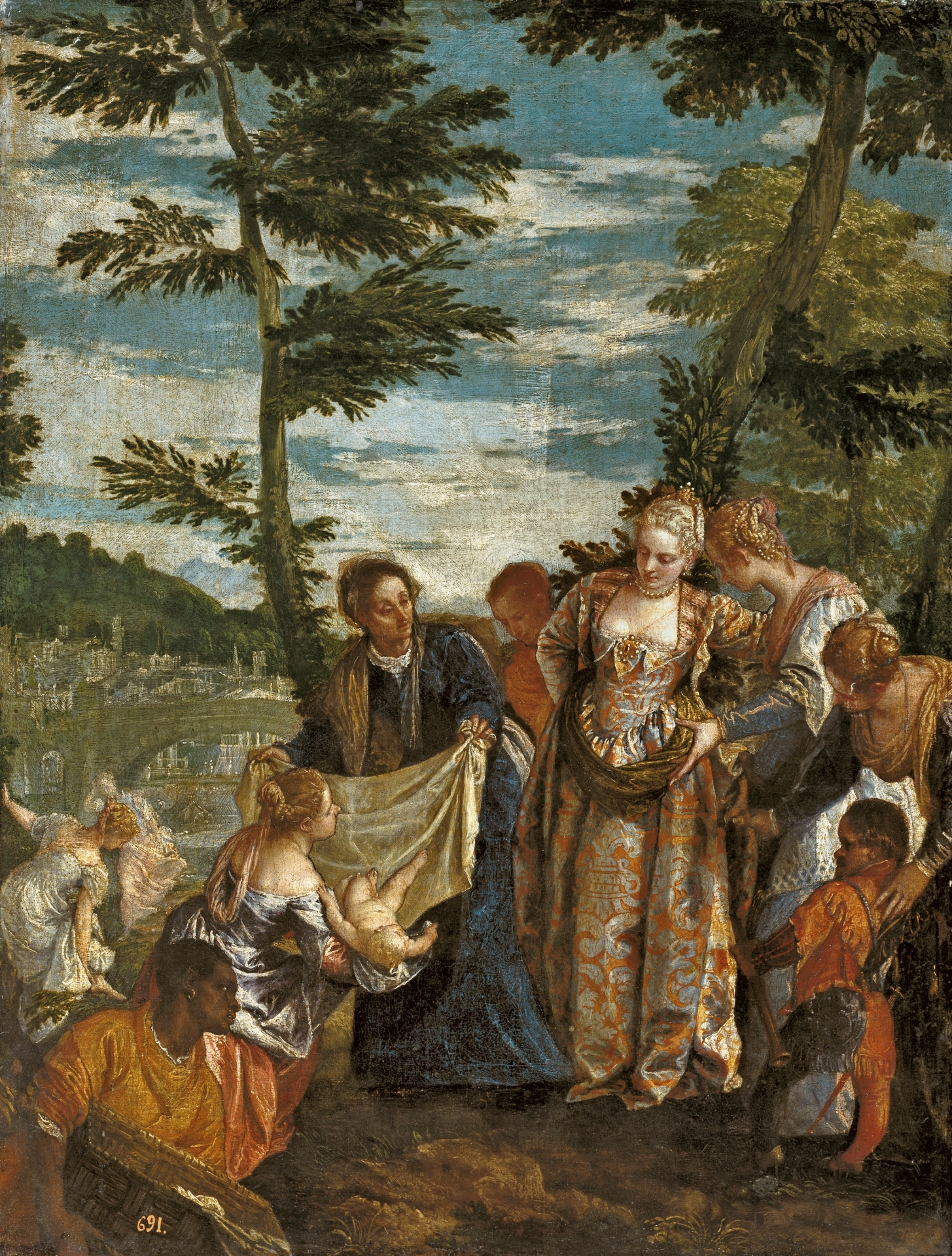
©Museo Nacional del Prado ©Archivo Fotográfico Museo Nacional del Prado
Paolo Caliari, known as Paolo Veronese (Verona, Italy 1528 – Venice, Italy 1588), The Finding of Moses, around 1580, oil on canvas, 57 cm x 43 cm, Madrid, Spain, Prado Museum
Month of January.
Women in the Old Testament: Pharaoh’s daughter
There was a man descended from Levi who had taken a woman of Levi as his wife. She conceived and gave birth to a son and, seeing what a fine child he was, she kept him hidden for three months. When she could hide him no longer, she got a papyrus basket for him; coating it with bitumen and pitch, she put the child inside and laid it among the reeds at the River's edge. His sister took up position some distance away to see what would happen to him. Now Pharaoh's daughter went down to bathe in the river, while her maids walked along the riverside. Among the reeds she noticed the basket, and she sent her maid to fetch it. She opened it and saw the child: the baby was crying. Feeling sorry for it, she said, 'This is one of the little Hebrews.' The child's sister then said to Pharaoh's daughter, 'Shall I go and find you a nurse among the Hebrew women to nurse the child for you?' 'Yes,' said Pharaoh's daughter, and the girl went and called the child's own mother. Pharaoh's daughter said to her, 'Take this child away and nurse it for me. I shall pay you myself for doing so.' So the woman took the child away and nursed it. When the child grew up, she brought him to Pharaoh's daughter who treated him like a son; she named him Moses 'because', she said, 'I drew him out of the water.' (Exodus 2:1-10)
Art for meditation - December 2021
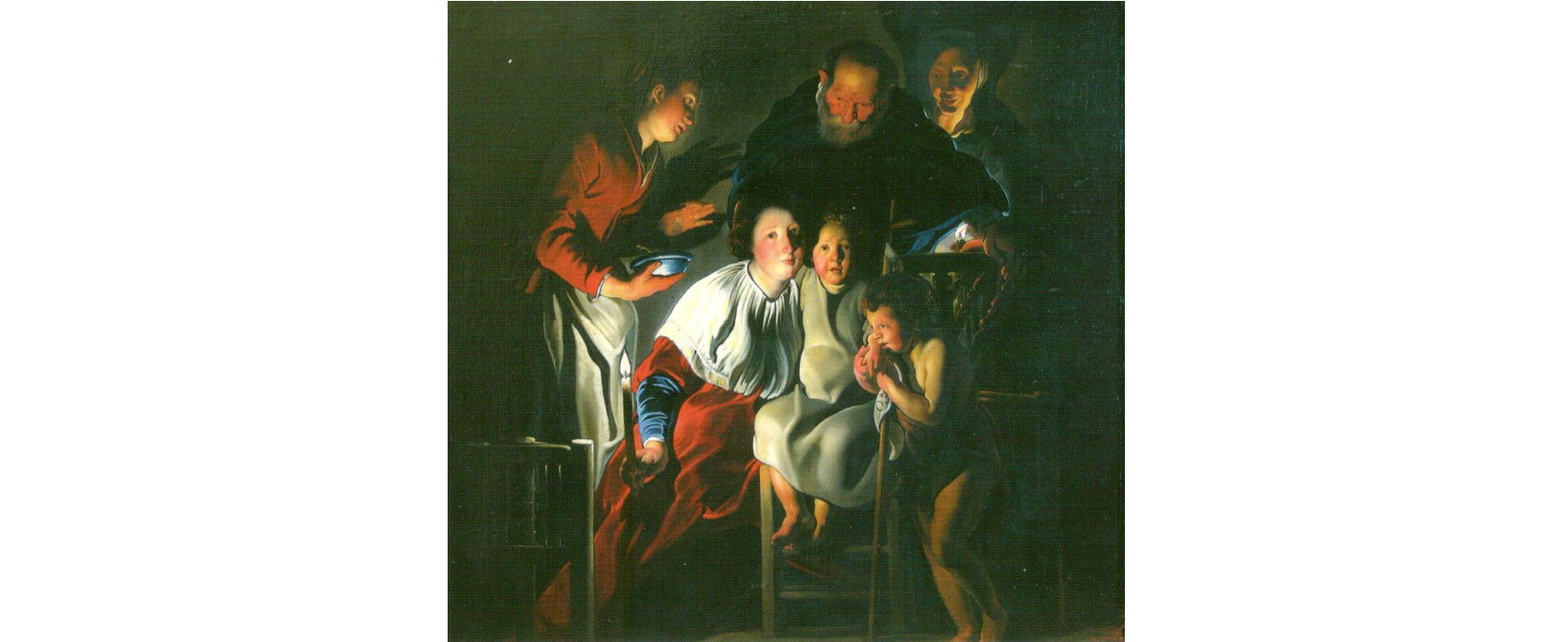
© Brukenthal National Museum
Jacob Jordaens (Antwerp, Belgium 1593 – 1678), The Holy Family, around 1625-30, oil on canvas, 113.1 cm x 118.5 cm, Sibiu, Romania, Brukenthal National Museum.
Month of December.
With this reflection, we conclude this journey we undertook by the figure of Saint Joseph, who was the guardian of the Holy Family. We do so with the help of a painting which is in some ways exceptional. It was done by one of Antwerp's most important painters, second in fame only to the great Peter Paul Rubens, whose main collaborator he became after Anthony Van Dick's departure for Italy.
Art for meditation - November 2021
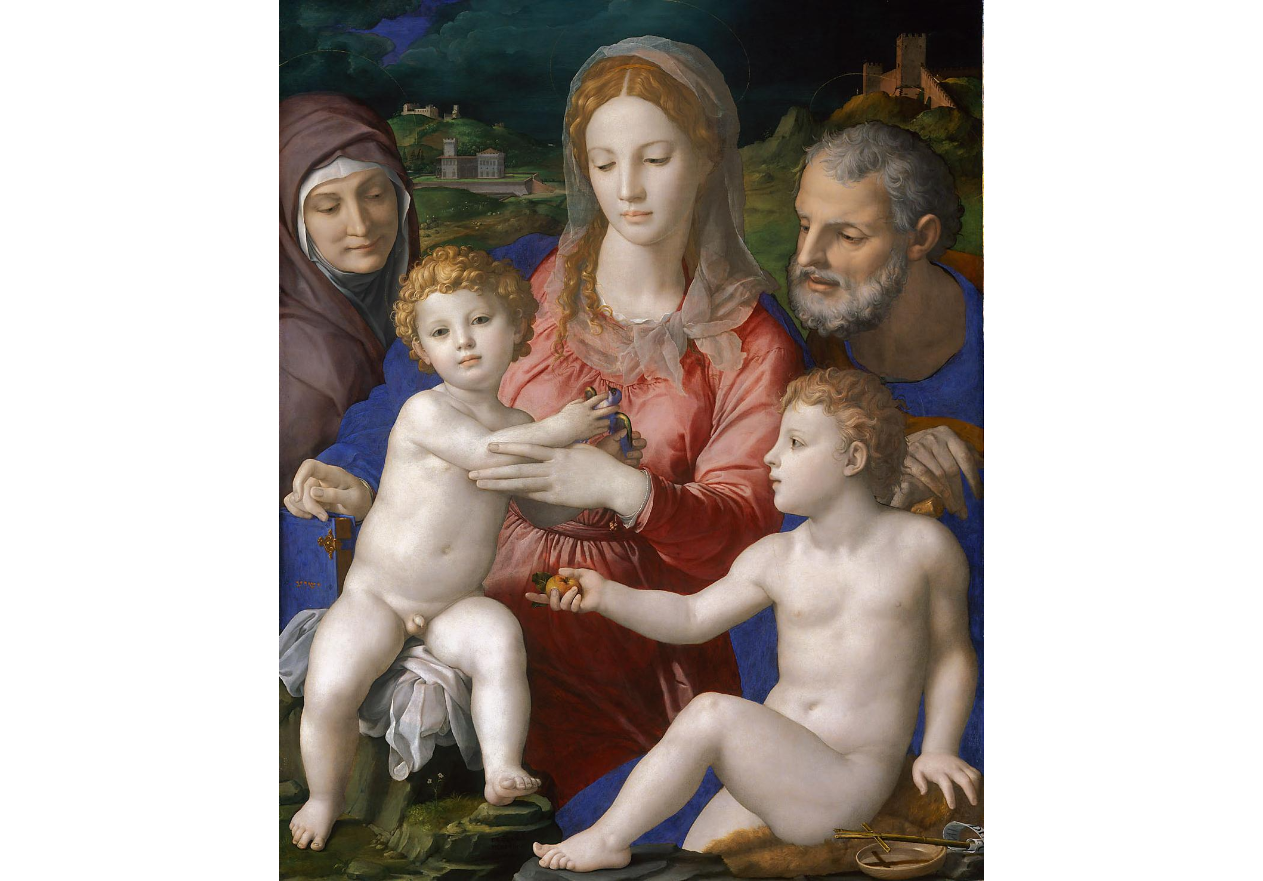
© KHM-Museumsverband - https://www.khm.at/en/objectdb/detail/318/?offset=2&lv=list
Agnolo di Cosimo, known as Bronzino (Monticelli, Italy 1503 – Florence, Italy 1572), Holy Family with St. Anne and the Infant St. John, around 1540, oil on poplar wood, 126.8 cm x 101.5 cm, Vienna, Kunsthistorisches Museum.
Month of November.
Today we contemplate on this mature painting by Bronzino, who became one of the favourite painters of the Medici, the family that ruled Florence. The fact that the painter was by then famous is also shown by the signature: on the stone under the left foot of Jesus we can read BROZINO FIORENTINO (Bronzino of Florence).
Art for meditation - October 2021
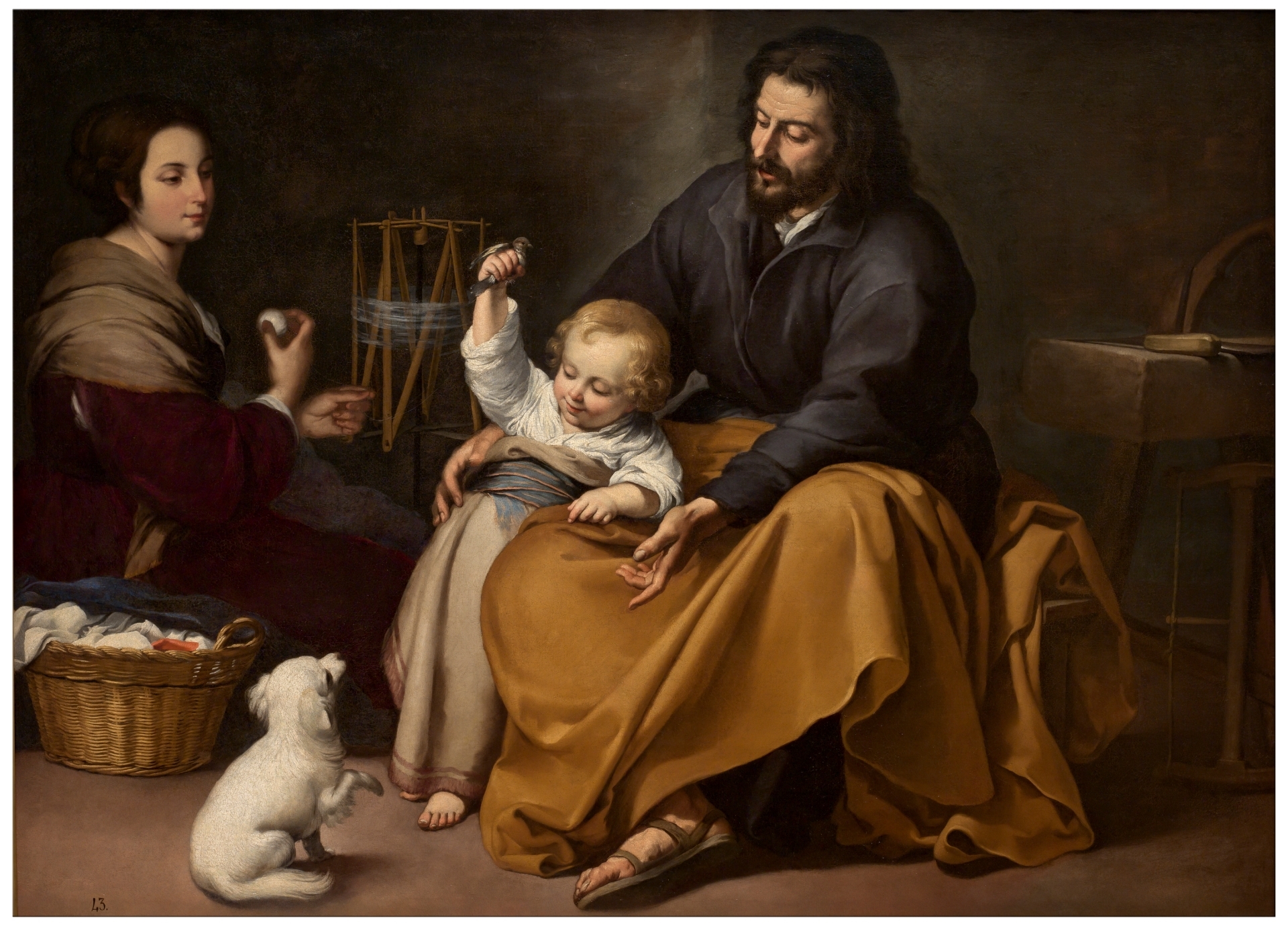
Image © website Museo Nacional del Prado
Bartolomé Esteban Murillo (Seville, Spain 1617 – 1682), The Holy Family with a Little Bird, around 1650, oil on canvas, 144 cm x 188 cm, Madrid, Spain, Prado Museum.
Month of October.
Contemplating this painting always brings great joy, because the painter favoured the simple, everyday dimension of the life of Jesus' family. They had finally returned to Nazareth, as evidenced by the carpenter's tools on the right side of the scene.
Art for Mediatation - September 2021
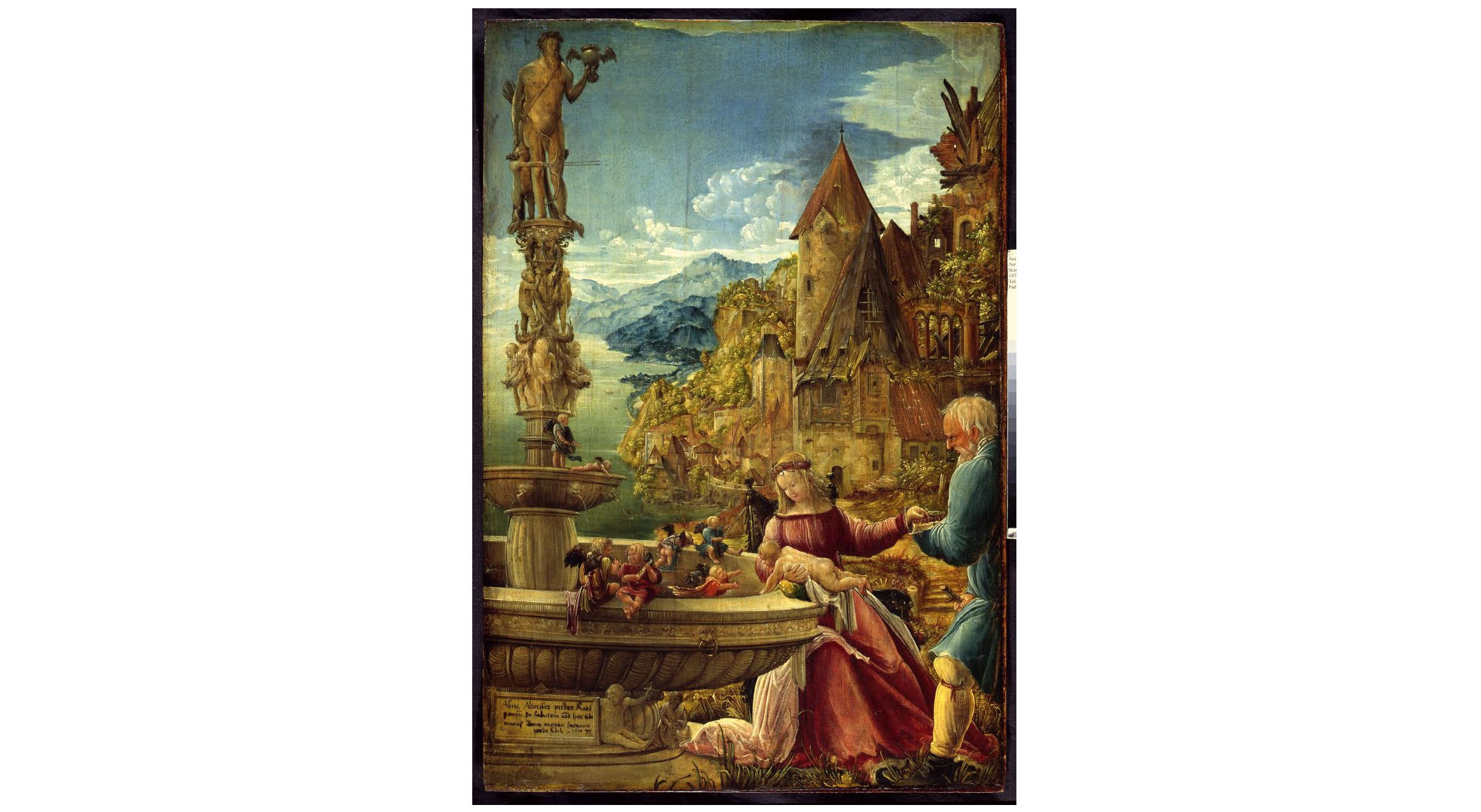 Albrecht Altdorfer, Ruhe auf der Flucht nach Ägypten, 1510, Cat. No. 638B
Albrecht Altdorfer, Ruhe auf der Flucht nach Ägypten, 1510, Cat. No. 638B
© Staatliche Museen zu Berlin, Gemäldegalerie / Jörg-P. Anders
Link: https://we.tl/t-xo1zjQWcfQ
Albrecht Altdorfer (Regensburg, Germany 1480 – 1538), Rest on the Flight into Egypt, 1510, oil on lime wood panel, 58.2 cm x 39.3 cm, Berlin, Germany, Gemäldegalerie.
Month of September.
This small painting is above all a painter’s act of faith and devotion. This can be seen in the inscription with which he signed the work, in the bottom left corner, on the round base of the fountain's basin: ‘The painter Albert Altdorfer of Regensburg has consecrated this gift for his salvation to you, Holy Mary, with a faithful heart.’ I am moved by his desire to put his talent for painting at the service of his salvation. And he does it in a commendable way with a small but very elaborate work.
Art for meditation - August 2021
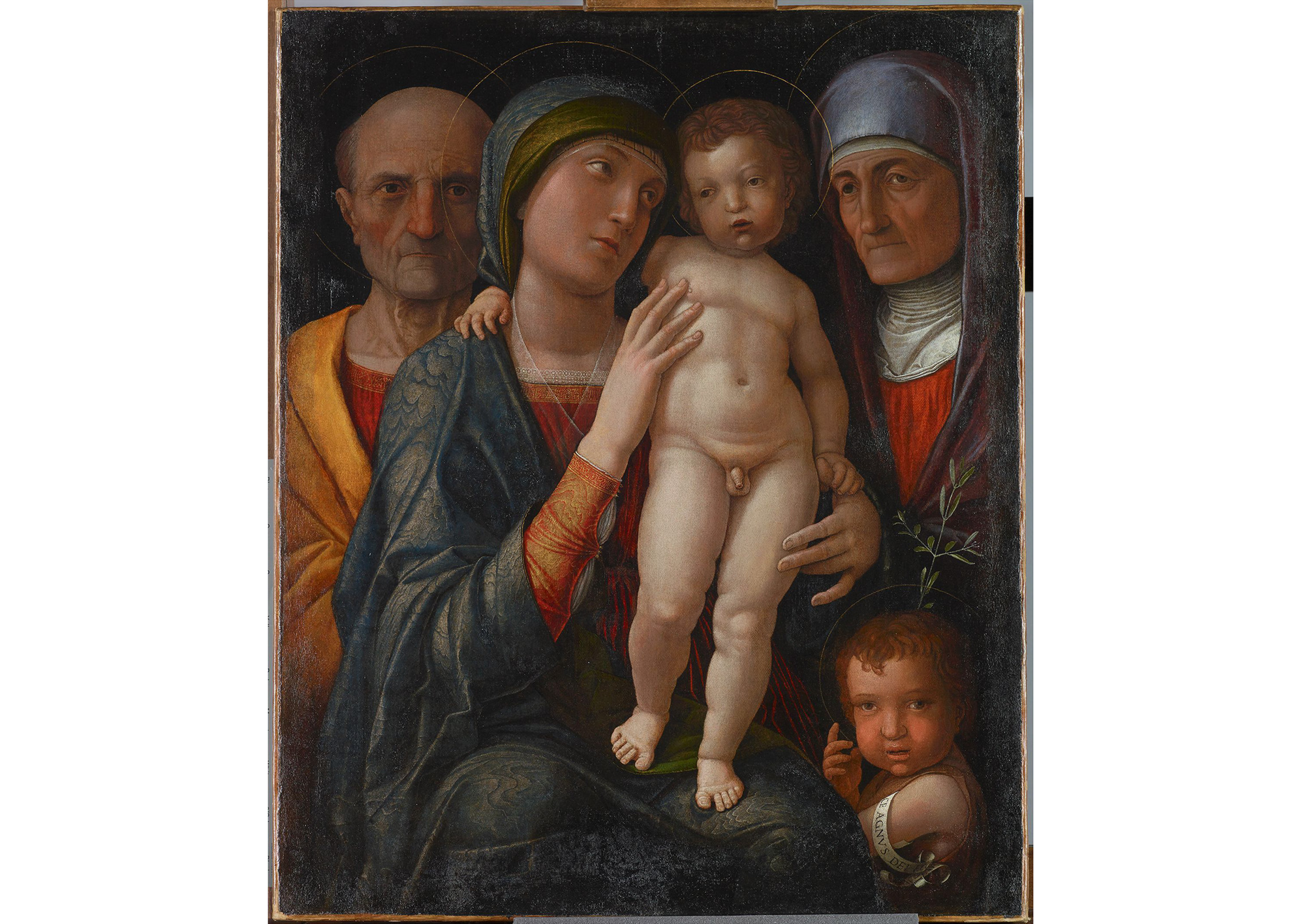
- © Gemäldegalerie Alte Meister, Staatliche Kunstsammlungen Dresden - Photo by Elke Estel/Hans-Peter Klut
Andrea Mantegna (Isola di Carturo, Italy 1431 – Mantua, Italy 1506), Holy Family, 1495-1500, egg tempera and linseed oil on canvas, 75 cm x 61.5 cm, Dresden, Gemäldegalerie Alte Meister. Inv. Gal.-Nr. 51
Month of August.
This work of art by the great Mantuan painter was almost certainly made for private devotion. We know little about the painting's history, but if we stare at it and contemplate it, before this work we can read into the folds of its meaning and listen to the emotions it arouses in us.
Art for Meditation - July 2021
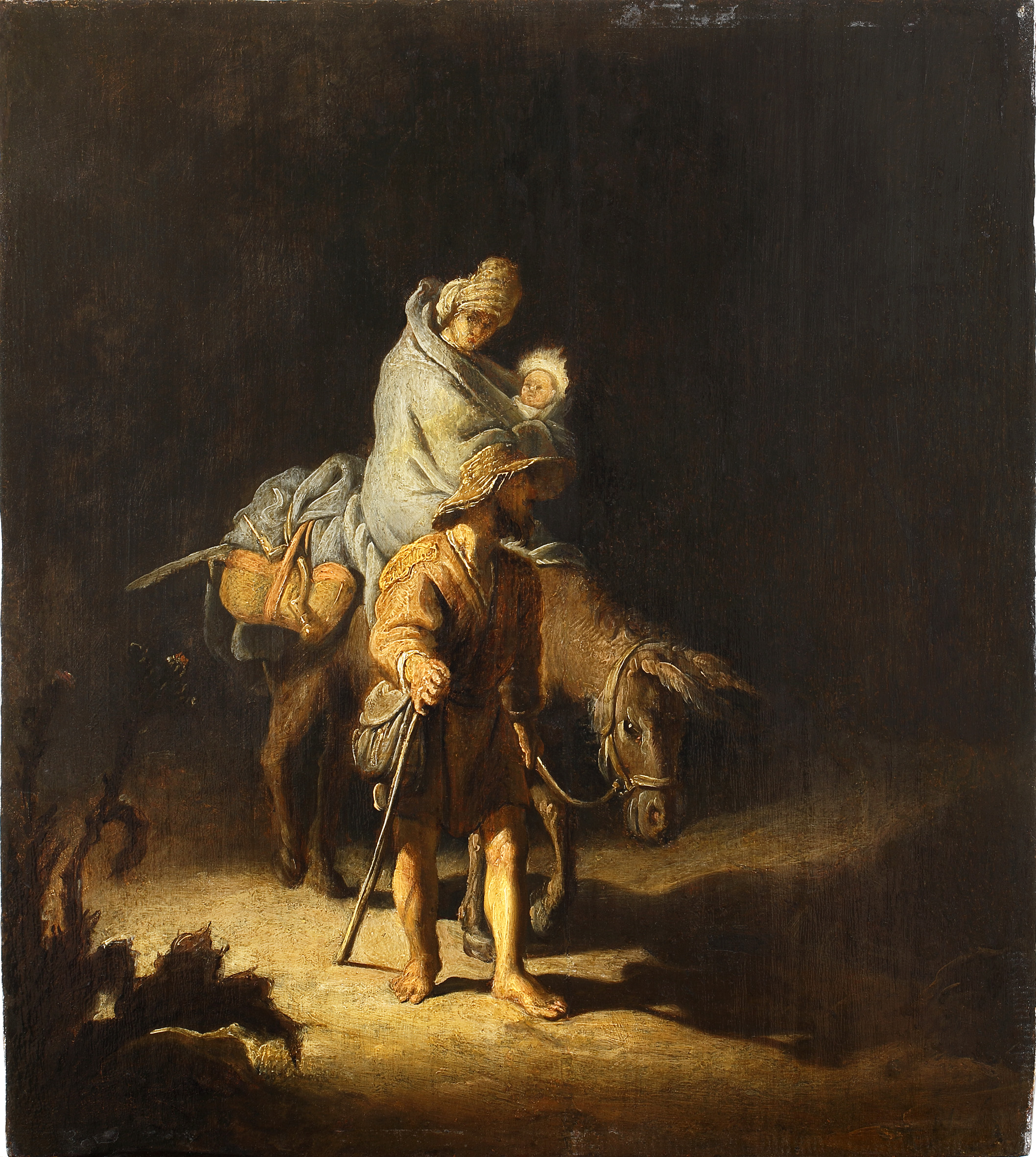
© Tours, musée des Beaux-Arts, cliché Dominique Couineau
Rembrandt Harmenszoon van Rijn, (Leiden, Netherlands 1606 – Amsterdam, Netherlands 1669), The flight into Egypt, 1627, oil on wood, 26 cm x 24 cm, Tours, France, Musée des Beaux-Arts, gift by Mme Benjamin Chaussemiche, 1950. Inv. 1950-13-1
Month of July
This representation of the flight of Jesus’ family into Egypt is truly unique. The first thing that strikes us is the small size of the painting. This suggests that the young painter, still in his early twenties, must have painted it for a client - whether lay or religious - who wanted to keep the work in his home for private devotion.
Art for meditation - June 2021
Bernhard Strigel, (Memmingen, Germany 1460 – 1528), Holy Family, 1505-1506, oil on fir wood, 78 cm x 55 cm, Nuremberg, Germany, Germanisches National Museum
Month of June.
The panel, along with nine others, all of them in Nuremberg, was part of the altarpiece of the chapel dedicated to St. Anne in the parish church of Mindelheim, Germany. The chapel was the burial place of the Rechberg and Frundsberg families, who asked the painter to depict the family of Jesus and his ancestors.
Art for Mediatation - May 2021
Master of the Saint Bartholomew Altarpiece (active in Cologne, Germany from 1470 to 1510 approximately), Holy Family, around 1495-1500, mixed technique on oak wood, 26 cm x 19,9 cm, Frankfurt, Germany, Städel Museum.
Month of May.
We do not know the name of the painter who painted this exquisite scene. He takes his name from a triptych - now in the Alte Pinakothek in Munich, Germany - depicting St Bartholomew and 6 other saints, originally placed in the Carthusian monastery in Cologne, as evidenced by the depiction of a Carthusian monk kneeling in the middle, next to St Bartholomew, then moved to the church of St Columba, in Cologne, at the behest of a wealthy city merchant.
